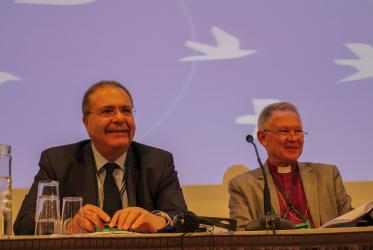Displaying 161 - 180 of 288
19 August 2016
Owe Boersma will strive for equilibrium as EAPPI coordinator
18 August 2016
Facilitating peace with passion
26 July 2016
Pilgrimage and youth
28 June 2016
Is there hope for the Middle East?
25 June 2016
Tveit in South Africa: “ We know. We dare. We can.”
12 June 2016
Peace, health and education are Gaza's future
24 May 2016











